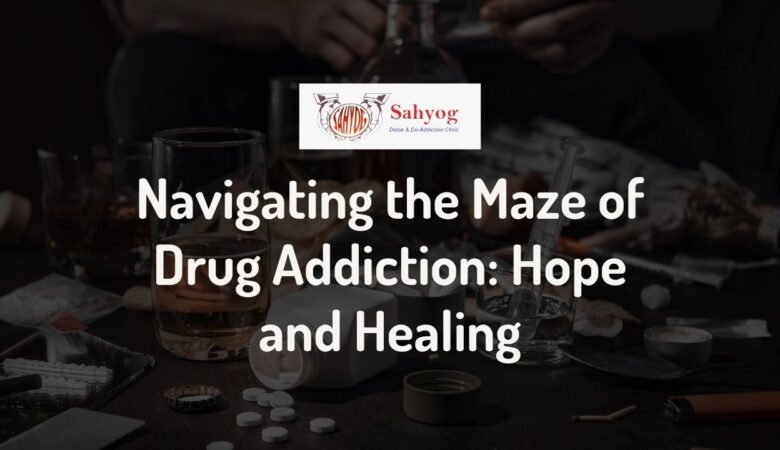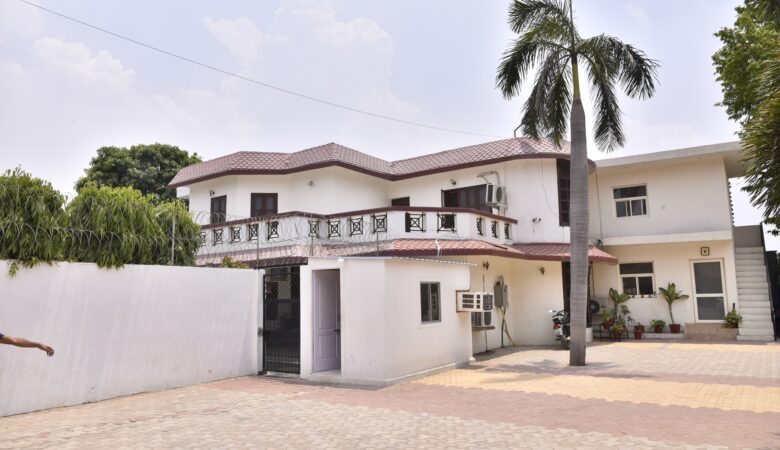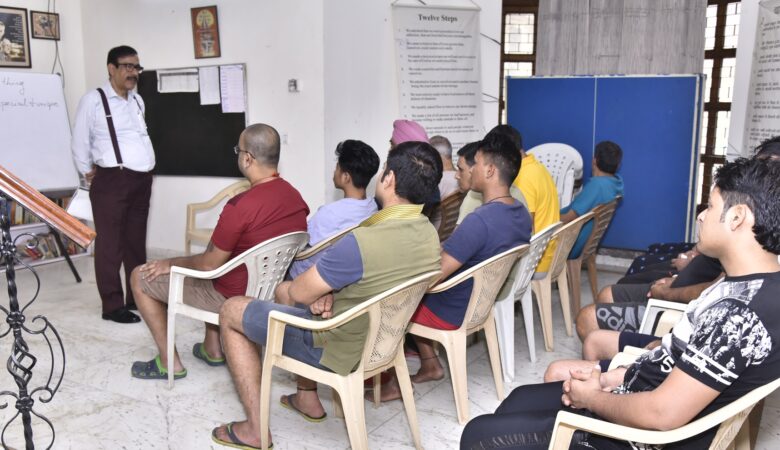Navigating the Maze of Drug Addiction: Hope and Healing
Introduction to the Maze of Drug Addiction Welcome to the tangled web of drug addiction – a labyrinth that ensnares millions of individuals and their loved ones worldwide. It’s a path that many stumble upon, sometimes by choice and other times by unfortunate circumstance. Regardless of how one finds themselves entangled in this maze, it is crucial to remember that there is always hope for healing. In this blog post, we will navigate through the different paths of addiction, explore the role of family and friends in supporting recovery, and shed light on the rays of hope that can guide addicts towards a brighter tomorrow. So grab hold of our virtual compass as we embark on this journey together – let us unravel the complexities surrounding drug addiction! The Different Paths of Addiction Drug addiction is a complex and multifaceted issue that can affect individuals from all walks of life. There is no one-size-fits-all path to addiction; rather, it takes different forms for different people. Some may find themselves spiraling into substance abuse due to underlying mental health issues or trauma they’ve experienced in their lives. Others may start experimenting with drugs out of curiosity or peer pressure, only to find themselves trapped in the grips of addiction. For some individuals, the road to addiction begins with prescription medications. They may have been prescribed painkillers following surgery or an injury and inadvertently become dependent on them. Over time, this dependency can escalate into full-blown addiction as they seek higher doses or turn to illicit substances when their prescriptions run out. In other cases, individuals may be drawn into drug use through recreational partying or socializing. What starts off as occasional experimentation can quickly escalate as tolerance builds and the need for more intense highs arises. Additionally, there are those who fall into substance abuse as a means of self-medicating emotional pain or distress. Whether it’s numbing feelings of anxiety, depression, or loneliness, drugs can provide temporary relief from these internal struggles. However, this coping mechanism ultimately exacerbates the underlying issues and creates a vicious cycle that is difficult to break free from. It’s important to recognize that each individual’s journey through addiction is unique and influenced by various factors such as genetics, environment, and personal circumstances. Understanding these different paths can help us approach addiction with empathy and compassion rather than judgment. By acknowledging the diverse nature of drug addiction experiences, we open up possibilities for tailored treatment approaches that address both the physical and psychological aspects of dependence. It highlights the importance of personalized support systems consisting not only of medical professionals but also family members and friends who play a crucial role in helping addicts navigate their way towards recovery. Navigating through the maze-like nature of addiction can be overwhelming, but it’s crucial to remember that there is hope. With the right treatment, support, and commitment to long-term recovery, individuals can reclaim their lives from the grasp of substance abuse. The Role of Family and Friends When it comes to navigating the maze of drug addiction, the role of family and friends cannot be overstated. They can provide a support system that is crucial for an addict’s recovery journey. Family and friends can offer emotional support. Addiction is a complex issue that often stems from underlying emotional pain or trauma. By providing a safe space for open communication, loved ones can help addicts confront their emotions and begin the healing process. Family and friends can act as accountability partners. They can encourage addicts to stay on track with their recovery plan by offering encouragement, reminding them of their goals, and helping them avoid triggers or tempting situations. Moreover, they play a vital role in creating a stable environment conducive to sobriety. By removing any substances or reminders of drug use from the home, loved ones ensure that recovering addicts have a safe place to heal. Additionally, education is key in supporting an addict’s recovery journey. Family members and friends should take the time to learn about addiction as well as available treatment options. This knowledge allows them to provide informed assistance while also understanding the challenges faced by their loved one. It’s important for families and friends not to neglect self-care during this process. Supporting someone through addiction can be emotionally draining at times; taking care of one’s own mental health ensures they are better equipped to offer ongoing support in the long run. Hope and Healing for Addicts When it comes to drug addiction, there is always hope for recovery. It may seem like a daunting journey, but with the right support and treatment, addicts can find their way back to a healthier and happier life. The first step towards healing is acknowledging the problem and seeking help. This can be incredibly challenging for addicts as they often face feelings of shame, guilt, and fear of judgment. However, reaching out to professionals who specialize in addiction treatment can provide them with the guidance and support they need. Treatment options vary depending on the individual’s needs and circumstances. In some cases, residential rehabilitation programs offer a safe environment where addicts can detoxify their bodies from drugs under medical supervision while also receiving therapy to address underlying emotional issues. Outpatient programs are another option that allows individuals to receive treatment while still maintaining some level of independence. These programs typically involve counseling sessions, group therapy sessions, and educational workshops focused on relapse prevention strategies. Recovery from addiction is not an overnight process; it requires patience, persistence, and commitment. Along this journey towards healing, family members and friends play an essential role in providing love, understanding, encouragement, and accountability. Support groups such as Narcotics Anonymous (NA) or Alcoholics Anonymous (AA) are also valuable resources for recovering addicts. These groups provide a sense of community where individuals can share their experiences without judgment while learning from others who have walked similar paths. While relapses may occur along the way – as addiction is a lifelong challenge – they should not





